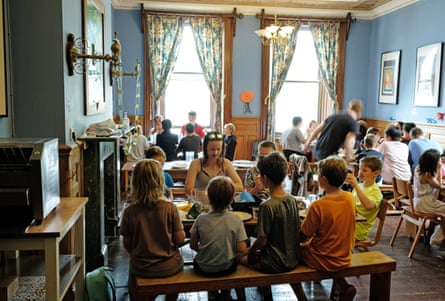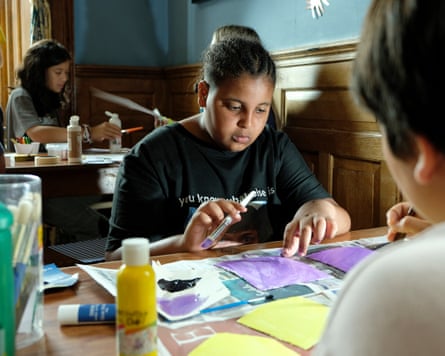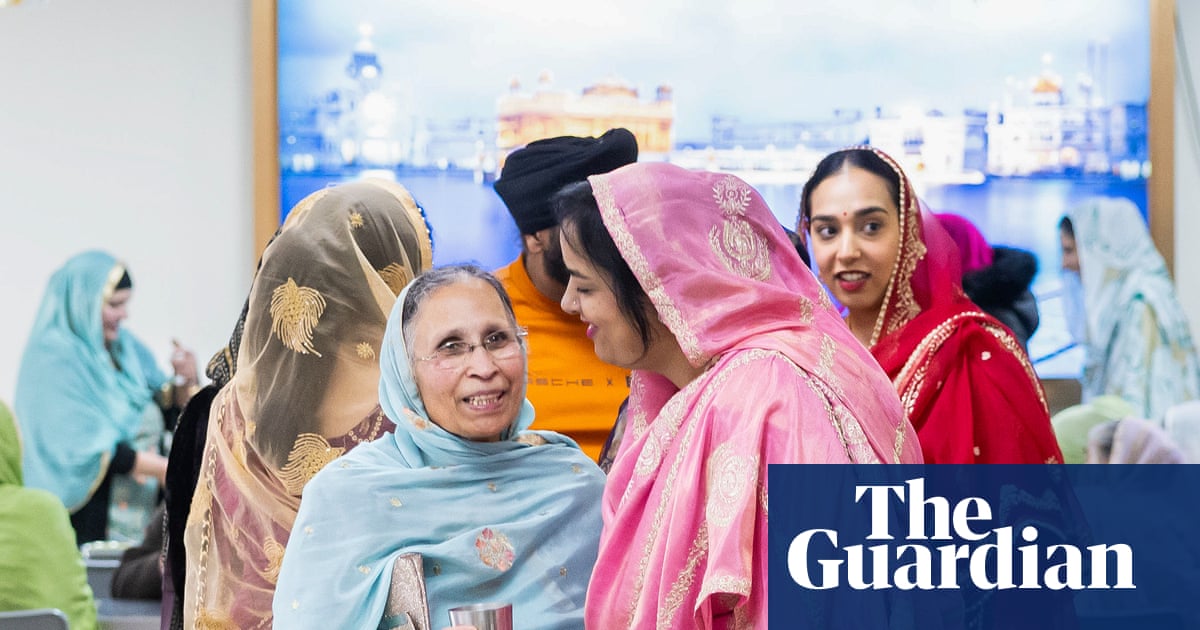In a large country school in the rolling Shropshire hills, a group of young boys sporting hand-drawn moustaches are proudly selling wares at a pine-cone shop they created that morning.
Another group of children have taken a picnic and gone on an adventure into the woods, while others have gone to the swimming pool or to play ballgames on the front lawn.
This is one of the Active Training and Education Trust (ATE) residential summer camps – they call them superweeks – where children from across the country convene for a week of fun, adventure, team building and a dose of silliness.
Summer camps are at risk of dying out in the UK, experts have warned, with rising costs, a lack of funding and general wariness among parents about what they entail making it harder to keep them going.

The Summer Camps Trust, which campaigns to raise the profile of summer camps in Britain and train young leaders, has recently written to the Department for Culture, Media and Sport asking for summer camps to be recognised in its upcoming youth strategy.
“We need a grant if possible, but with or without that, we need officialdom to say this is a good thing for children, some sort of official recognition of what summer camps can do for children,” said Chris Green, the coordinator of the charity, which estimates only 2% of nine- to 15-year-olds in Britain currently attend them.

Summer camps are big business in America, where 26 million children and adults take part in one annually, and are also common in many European countries.
Green said summer camps in Britain often only made the news when things went wrong – such as when earlier this month a man was arrested for allegedly lacing sweets with sedatives at a summer camp in Leicestershire. This did nothing to ease parents’ fears about sending their children away for a week, he said.
“Parents are much more frightened these days of letting children out of their sight, so far too many of our kids, in the summer holidays, they’re confined to their bedrooms with a laptop because people think they’re safe there,” he said.
Green has been involved in the movement for British summer camps since the 1960s, after visiting French colonies de vacances and feeling that British children would benefit from the chance to meet people from different areas and social classes.
“In the world of today, it’s needed even more. Because the opportunity to put away your mobile phones and get away from social media, to simply be kids, playing in a green space, laughing, having a nice time together, is sickeningly rare,” he said. “We’re letting our kids down so badly at the moment in this country by not providing that.”

At the ATE camp, all children hand their phones in at the start of the week, and the focus is on creating an “authentic childhood experience” with songs and games, and children of all ages mixing together.
“Not having a phone means you don’t have access to your old life, but you also aren’t aware of who’s got what and who’s in what, and who can talk to who,” said Margot Leys, a 24-year-old chef from Glasgow. “It makes it feel like we are the only 80 people in the whole world.”
Leys has trained to become one of the volunteer youth leaders – known as monitors – who lead small groups of children for the duration of the week, while a broader team including a director, matron and general assistants keep the whole show on the road.
“There’s a feeling here that’s hard to describe. It’s playing, and it’s a place where anyone can be silly. I think it’s really nice seeing a bunch of 16-year-olds slowly shed that self-consciousness and just let it all go,” Leys said.
“It’s such a break from the stress of normal life,” said Nina, 15, from London, attending the camp for the fourth time. “I get to do stuff that I don’t usually do, and it’s nice just expanding out of the little bubble that I live in.
“At the beginning, you might feel like, oh, I don’t know what I’m going to do without my phone, but there’s so much to do, and you sort of forget about your phone, about technology.”

The week is less about assault courses and wall climbing and more about crafts, games, hot chocolates and long walks, with a focus on activities that can easily be recreated at home.
This helps keep costs down, but this year ATE has had to cut its superweeks from eight to seven days to keep the £519 fee the same, and it is increasingly difficult to get funding to subsidise places for children from disadvantaged backgrounds, who used to make up a third of the attendees.
ATE uses venues such as boarding schools and outdoor activity and education centres, all of which are seeing higher running costs.

“We’re the least expensive [summer camp] on the market. But now we’ve become a luxury ticket item for families and they have to see the benefit of what we do,” said Liz Macartney, the managing director of ATE Trust.
“There’s lots more competition for funding, and it’s often hard to show the benefit of what we do, what problems we’re solving. We’re growing children up to be compassionate and empathetic, to become really decent lovely human beings interested in other people.
“We would never make a claim that every child sat at home would participate in everything that we do. But we remove those screens and pressures, and we make it really clear to them that we don’t know who you are at home, if you’re the cool kid, the shy kid, the geeky kid or whatever, so be whichever kid you want to be.”

 2 months ago
43
2 months ago
43

















































